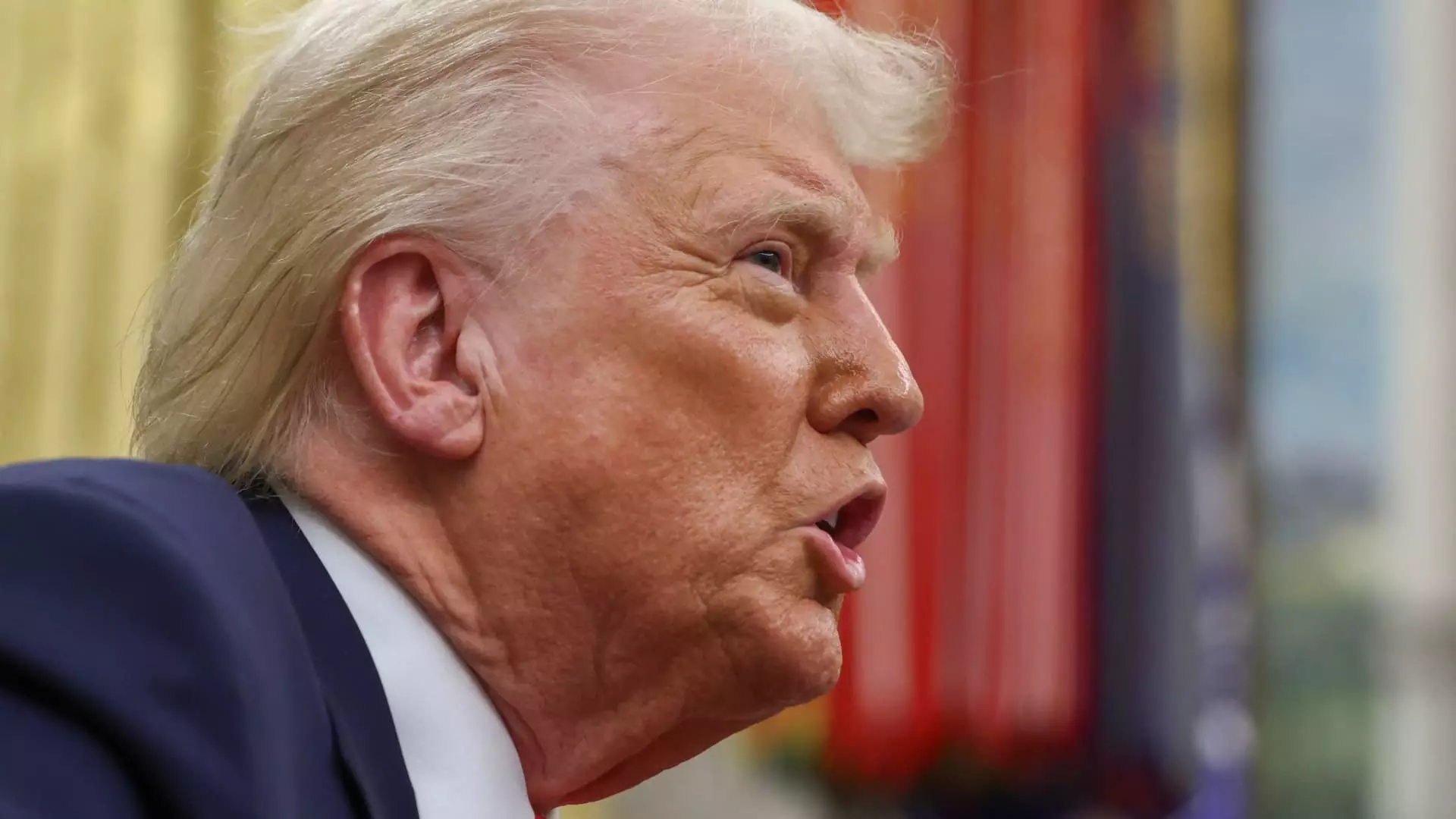This week marked a sharp downturn in major stock indices, a phenomenon that seems all too familiar amid President Trump’s tumultuous economic policies. Investors, who continually seek stability, are left crossing their fingers every time the president makes a public statement about trade tariffs. The market’s reaction, a direct reflection of investor sentiment, indicates a growing unease that is hard to ignore. As he flounders to find stability in his trade practices, the president has inadvertently tossed a hefty boulder into the ocean of global finance, creating waves that terrify the cautious investor.
In what can only be described as a series of economic miscalculations, Trump has responded to the plummeting markets by dismissing the impact of his tariffs. Instead, he opts to focus on a nebulous enemy he labels as “globalists.” This term not only muddies the waters of meaningful discourse but also introduces an uncomfortable historical baggage. It begs the question: why cast shadows of conspiracy when the challenges in our economy are stark and clear?
Misguided Critiques of Globalism
The president’s musings about globalism paint a glaring picture of confusion and misconceived priorities. In his statements, he describes “globalist countries” as enemies to American prosperity. Yet, there’s an inherent hypocrisy in this narrative. The very companies that Trump critiques are often American-based enterprises, employing American workers. By categorizing globalization as a foe, Trump risks alienating industries vital to the U.S. economy.
When the president refers to “globalists,” he insinuates a coordinated plot against America—a notion that sows seeds of distrust among Americans. Critics point out that these claims often echo historical antisemitic sentiments, using “globalist” as a euphemism for otherness. The implications are alarming; the idea that a particular group acts as an influential cabal detracts attention from grappled issues such as wages, employment rates, and healthcare.
A Fragile Economy and Nationalist Rhetoric
The intertwining of nationalist rhetoric and economic policy demands scrutiny. Tariffs, often seen as tools of protectionism, can indeed serve domestic industries, yet their consequences often extend much further. As seen in recent months, tariffs have sparked retaliation from trade partners and increased costs for American consumers. With Trump’s insistence that these tariffs are a strategic means to reclaim what “has been taken,” there looms a definitive risk of further destabilizing the economy he claims to protect.
By stating that his tariffs will eventually lead to a robust economy, the president overlooks a critical economic principle: stability is often pivotal to prosperity. The unpredictability of his policy not only hampers investor confidence but also generates apprehension among consumers who are likely to bear the brunt of rising prices. When the president brushes off market fears, stating he isn’t even looking at the market, he fuels uncertainty, leading to a more volatile economic environment.
Temporary Exemptions: A Band-Aid Solution
In a perplexing move, Trump recently implemented temporary exemptions on tariffs imposed on neighboring countries, only to assert that these exemptions had nothing to do with market reactions. It is alarming how discounting the market’s sentiment has become a routine in the Trump administration. Such half-measures may have immediate appeasing effects, but they are fundamentally reactionary. They demonstrate a lack of consistent strategy and leave businesses in limbo, whereby companies must navigate a landscape littered with unpredictable changes.
Acknowledging the potential for market disruption while simultaneously downplaying its significance reveals a detachment that is concerning. President Trump’s fluctuating rhetoric seems to suggest that chaos is an acceptable norm—a dangerous defense that sows discord among American businesses. Such managerial inconsistency only serves to intensify the uncertainty wreaking havoc in the stock market, pushing investors further into a corner of apprehension.
Confronting the Future with Timid Dialogue
The confusing economic discourse emanating from the Oval Office raises pressing concerns for the nation’s financial trajectory. As the nation grapples with issues stemming from trade dynamics, the dialogue must shift from mere bravado to nuanced understanding. Embracing an informed, deliberative approach to economic engagement would not only assuage investor fears but also reclaim a sense of national purpose that resonates beyond partisan divides. The path forward should prioritize clarity and stability, essential components for fostering robust economic growth amidst the challenges of globalization.


Leave a Reply